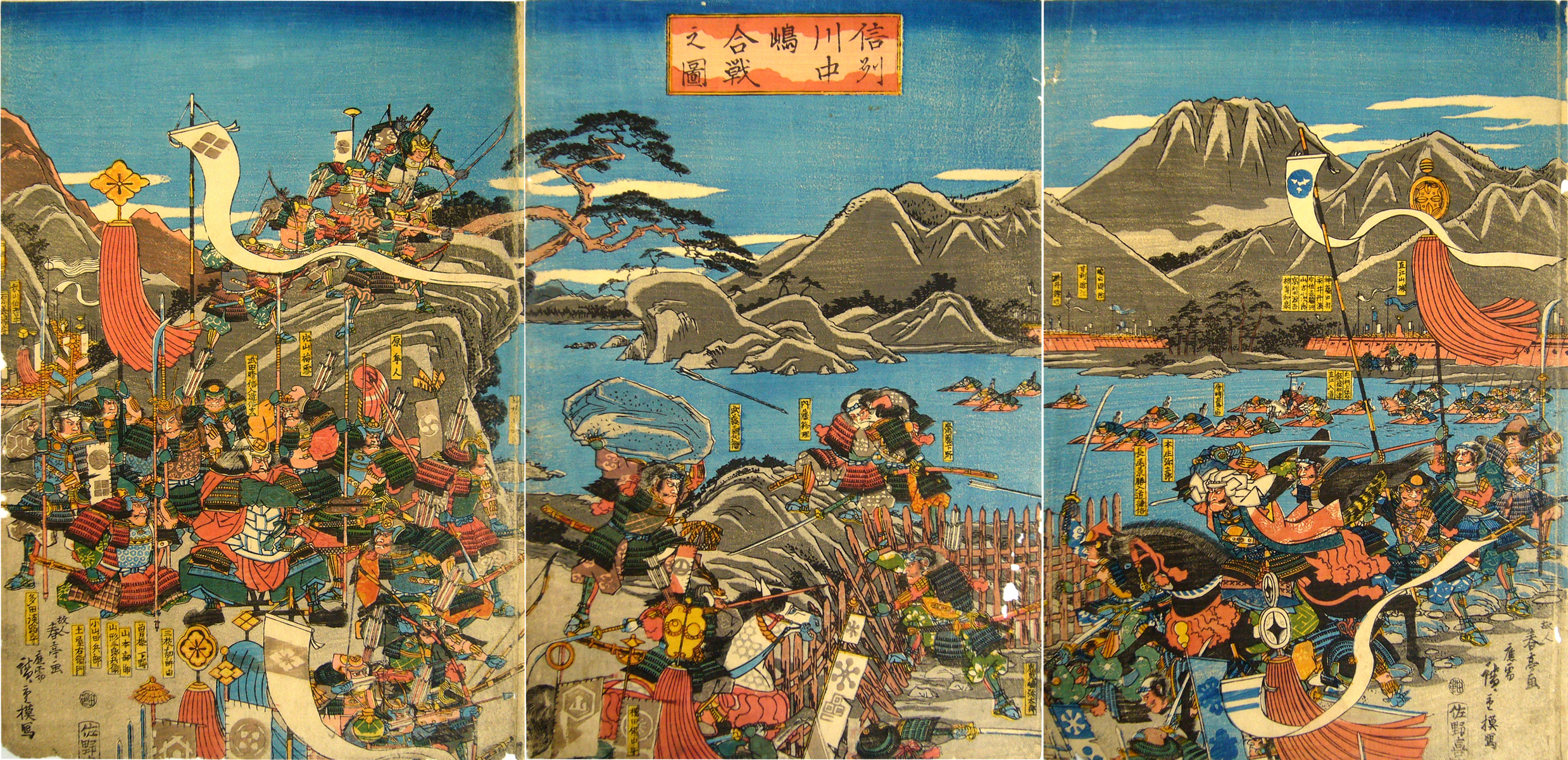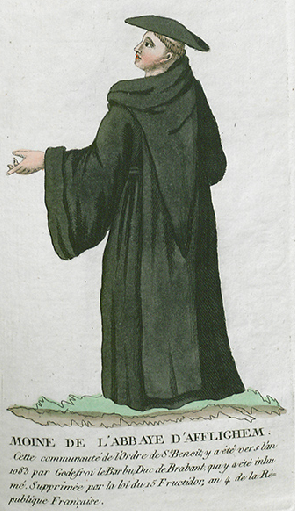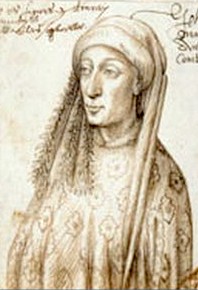|
Charles De Croÿ
Charles de Croÿ Prince of Chimay ( nl, Karel van Croij; 1506 – 11 December 1564) was a bishop of the Roman Catholic Diocese of Tournai, See of Tournai in present-day Belgium from 1524 until 1564. Charles was born in 1506 as a member of the House of Croÿ. He was a nephew of William de Croÿ, Lord of Chièvres (1458–1521) and a brother of William de Croÿ (bishop), William de Croÿ, Roman Catholic Archdiocese of Toledo, Archbishop of Toledo (1498–1521). He matriculated at the Old University of Leuven, University of Louvain in 1523. Among Charles' teachers were Adrianus Barlandus, Jacobus Latomus, and Johannes Driedo. A biography of Pierre Cotrel, vicar-general of the Diocese of Tournai from 1497 to 1545, mentions Charles, as do materials describing a château he built in the village of Moorsel in 1546. He was Abbot of Affligem Abbey between 1521–1564. References External link * 1506 births 1564 deaths Bishops of Tournai 16th-century Roman Catholic bishops in t ... [...More Info...] [...Related Items...] OR: [Wikipedia] [Google] [Baidu] |
Louis Guillard
Louis may refer to: * Louis (coin) * Louis (given name), origin and several individuals with this name * Louis (surname) * Louis (singer), Serbian singer * HMS Louis, HMS ''Louis'', two ships of the Royal Navy See also Derived or associated terms * Lewis (other) * Louie (other) * Luis (other) * Louise (other) * Louisville (other) * Louis Cruise Lines * Louis dressing, for salad * Louis Quinze, design style Associated names * * Chlodwig, the origin of the name Ludwig, which is translated to English as "Louis" * Ladislav and László - names sometimes erroneously associated with "Louis" * Ludovic, Ludwig (other), Ludwig, Ludwick, Ludwik, names sometimes translated to English as "Louis" {{disambiguation ... [...More Info...] [...Related Items...] OR: [Wikipedia] [Google] [Baidu] |
Adrianus Barlandus
Adriaan van Baarland or Adrianus Barlandus or Hadrianus Barlandus (1486–1538) was a Dutch historian of merit. He was born in the village of Baarland, from which he took his name. He studied at Ghent and Leuven, at which latter place he was elected professor of eloquence at the Collegium Trilingue in 1526, after a stay of some years in England. He died in Leuven in 1538, and was succeeded at the Collegium Trilingue by Conrad Goclenius. Besides some philological works of no great value, Van Baarland wrote a number of historical works, especially about the various provinces in the Low Countries The term Low Countries, also known as the Low Lands ( nl, de Lage Landen, french: les Pays-Bas, lb, déi Niddereg Lännereien) and historically called the Netherlands ( nl, de Nederlanden), Flanders, or Belgica, is a coastal lowland region in N .... References 1486 births 1538 deaths 16th-century Latin-language writers Habsburg Netherlands historians People from Borsele [...More Info...] [...Related Items...] OR: [Wikipedia] [Google] [Baidu] |
Bishops Of Tournai
A bishop is an ordained clergy member who is entrusted with a position of authority and oversight in a religious institution. In Christianity, bishops are normally responsible for the governance of dioceses. The role or office of bishop is called episcopacy. Organizationally, several Christian denominations utilize ecclesiastical structures that call for the position of bishops, while other denominations have dispensed with this office, seeing it as a symbol of power. Bishops have also exercised political authority. Traditionally, bishops claim apostolic succession, a direct historical lineage dating back to the original Twelve Apostles or Saint Paul. The bishops are by doctrine understood as those who possess the full priesthood given by Jesus Christ, and therefore may ordain other clergy, including other bishops. A person ordained as a deacon, priest (i.e. presbyter), and then bishop is understood to hold the fullness of the ministerial priesthood, given responsibility by ... [...More Info...] [...Related Items...] OR: [Wikipedia] [Google] [Baidu] |
1564 Deaths
Year 1564 ( MDLXIV) was a leap year starting on Saturday (link will display the full calendar) of the Julian calendar. Events January–June * January 26 – Livonian War – Battle of Ula: A Lithuanian surprise attack results in a decisive defeat of the numerically superior Russian forces. * March 25 – Battle of Angol in Chile: Spanish Conquistador Lorenzo Bernal del Mercado defeats and kills the toqui Illangulién. * June 22 – French settlers abandon Charlesfort, the first French attempt at colonizing what is now the United States, and establish Fort Caroline in Florida. July–December * July – English merchant Anthony Jenkinson returns to London from his second expedition to the Grand Duchy of Moscow, having gained a considerable extension of trading rights for the English Muscovy Company. * September 4 – The Ronneby Bloodbath takes place in Ronneby, Denmark (now in Sweden). * September 10 – Battle of Kawanakajima in ... [...More Info...] [...Related Items...] OR: [Wikipedia] [Google] [Baidu] |
1506 Births
Fifteen or 15 may refer to: *15 (number), the natural number following 14 and preceding 16 *one of the years 15 BC, AD 15, 1915, 2015 Music *Fifteen (band), a punk rock band Albums * ''15'' (Buckcherry album), 2005 * ''15'' (Ani Lorak album), 2007 * ''15'' (Phatfish album), 2008 * ''15'' (mixtape), a 2018 mixtape by Bhad Bhabie * ''Fifteen'' (Green River Ordinance album), 2016 * ''Fifteen'' (The Wailin' Jennys album), 2017 * ''Fifteen'', a 2012 album by Colin James Songs * "Fifteen" (song), a 2008 song by Taylor Swift *"Fifteen", a song by Harry Belafonte from the album '' Love Is a Gentle Thing'' *"15", a song by Rilo Kiley from the album ''Under the Blacklight'' *"15", a song by Marilyn Manson from the album ''The High End of Low'' *"The 15th", a 1979 song by Wire Other uses *Fifteen, Ohio, a community in the United States * ''15'' (film), a 2003 Singaporean film * ''Fifteen'' (TV series), international release name of ''Hillside'', a Canadian-American teen drama *Fi ... [...More Info...] [...Related Items...] OR: [Wikipedia] [Google] [Baidu] |
Affligem Abbey
Affligem Abbey ( nl, Abdij Affligem, french: Abbaye d'Affligem) is a Benedictine abbey in the municipality of Affligem, Flemish Brabant, Belgium, to the north-west of Brussels. Dedicated in 1086, it was the most important monastery in the Duchy of Brabant and therefore often called ''Primaria Brabantiae''. History First foundation On 28 June 1062, an hermitical fraternity was founded in Affligem by six knights who repented of their violent way of life. Hermann II, Count Palatine of Lotharingia (1061–1085) and his guardian, Anno II, archbishop of Cologne (d. 1075) donated the foundation grounds. On this land, the first abbey church, dedicated to Saint Peter, was erected in 1083. The Benedictine Rule was adopted in 1085, followed by the formal dedication of the abbey in 1086.Brock, Henry. "Afflighem." The Cat ... [...More Info...] [...Related Items...] OR: [Wikipedia] [Google] [Baidu] |
Moorsel
Moorsel is a village in the Denderstreek in the province East Flanders in Belgium, a '' deelgemeente'' of the city of Aalst. The village belongs to a league of neighbouring villages, which call themselves the ''Faluintjesgemeenten''. Moorsel is the largest of the four villages with approximately 5,175 inhabitants as of 2021. Name Today's accepted spelling "Moorsel" dates merely from the 18th century. Latin spellings, such as ''Morcella'' or ''Morscella'' (adj. ''Morscellensis''), are dating back to about 1048''Vita S. Gudilae''. The name itself appears to be a combination of ''moor'' (marshland) and ''sele'' or ''sall'' (dwelling), hence a dwelling located in marshland. History Historical records about the village of Moorsel date back from the early Middle Ages. Approximately one-third of the territory, called ''Moorsel-proper'', was controlled by a local landlord. His housings included a medieval moat, which is still visible in the landscape. The feudal title was elevated to a ... [...More Info...] [...Related Items...] OR: [Wikipedia] [Google] [Baidu] |
Jacobus Latomus
Jacobus Latomus (or Jacques Masson) ( – 29 May 1544)Juhász, 320. was a Catholic Flemish theologian, a distinguished member of the Faculty of Theology at the University of Leuven. Latomus was a theological adviser to the Inquisition, and his exchange with William Tyndale is particularly noted. The general focus of his academic work centered on opposing Martin Luther and the Protestant Reformation, supporting the papacy and the hierarchy of the Catholic Church. ''Etymology:'' Latinized ''Latomus'' = ''Masson'' from Greek ''lā-tómos'' 'stone-cutter, quarryman', thus 'mason'. Academic career Latomus completed his studies in Paris at the Collège de Montaigu, where he obtained a doctorate in theology in 1519. In the same year, he began teaching theology in Leuven, becoming a full professor in 1535. Having risen to the post of dean of the Faculty of Theology, he became rector of the University of Leuven in 1537. His first work was published in 1519, a criticism of Biblical languag ... [...More Info...] [...Related Items...] OR: [Wikipedia] [Google] [Baidu] |
Old University Of Leuven
The Old University of Leuven (or of Louvain) is the name historians give to the university, or ''studium generale'', founded in Leuven, Brabant (then part of the Burgundian Netherlands, now part of Belgium), in 1425. The university was closed in 1797, a week after the cession to the French Republic of the Austrian Netherlands and the principality of Liège (jointly the future Belgium) by the Treaty of Campo Formio. The name was in medieval Latin Studium generale Lovaniense or Universitas Studii Lovaniensis, in humanistical Latin Academia Lovaniensis, and most usually, Universitas Lovaniensis, in Dutch Universiteyt Loven and also Hooge School van Loven. It is commonly referred to as the University of Leuven or University of Louvain, sometimes with the qualification "old" to distinguish it from the Catholic University of Leuven (established 1835 in Leuven). This might also refer to a short-lived but historically important State University of Leuven, 1817–1835. The immedi ... [...More Info...] [...Related Items...] OR: [Wikipedia] [Google] [Baidu] |
Guibert D'Ongnies
Guibert is a given name and surname, and may refer to: ; Given name *Guibert of Ravenna (or Wibert of Ravenna; c. 1029–1100), Italian Roman Catholic archbishop of Ravenna, elected Antipope Clement III *Guibert of Gembloux (10th century), founder of the Abbey of Gembloux *Guibert of Nogent (c. 1055–1124), Benedictine author and theologian *Guibert of Tournai (13th century), Franciscan theologian *Maistre Guibert Kaukesel, or Hubert Chaucesel (fl. c. 1230–55), French trouvère from Arras * Guibert of Cors (died 1258), French knight and Baron of Mitopoli in the Principality of Achaea ; Surname * André Guibert (1886-1966), French psychiatrist and psychoanalyst *Andres Guibert (born 1968), Cuban basketball player *Élisabeth Guibert (1725–1788), French writer *Georges Guibert (1915–1997), French Roman Catholic missionary in Senegal and Réunion *Hervé Guibert (1955-1991), French author *Jacques-Antoine-Hippolyte de Guibert (1743–1790), French soldier, civil-military theori ... [...More Info...] [...Related Items...] OR: [Wikipedia] [Google] [Baidu] |
Roman Catholic Archdiocese Of Toledo
This is a list of Bishops and Archbishops of Toledo ( la, Archidioecesis Metropolitae Toletana)."Archdiocese of Toledo" ''''. David M. Cheney. Retrieved September 15, 2016"Metropolitan Archdiocese of Toledo" ''GCatholic.org''. Gabriel Chow. Retrieved September 15, 2016 They are also the of |
William De Croÿ (bishop)
Cardinal Guillaume, Guillermo or William de Croÿ (1497 – 6 January 1521), a member of the noble House of Croÿ, was Prince-Bishop of Cambrai from 1516 to 1519 and Archbishop of Toledo from 1517 to 1521. He was born in the Habsburg Netherlands and died in Worms, Germany. Family and early life William de Croÿ was the son of Henry de Croÿ, count of Porcien, and Charlotte de Châteaubriant. One of his uncles was the powerful William de Croÿ, Lord of Chièvres, a leading adviser to the future Holy Roman Emperor, Charles of Ghent. Another was Jacques de Croÿ, prince-bishop of Cambrai. The young William was tutored by the Spanish humanist Juan Luis Vives. He matriculated at the University of Leuven on 3 September 1511.Moreau, pp. 369-370. He was later the dedicatee of Vives' ''Meditationes'' (Leuven, 1518), and of Jacobus Latomus' ''De trium linguarum'' (Antwerp, 1519), both figures who had mentored him at university. Ecclesiastical career In 1516, aged only 18, Croÿ was ... [...More Info...] [...Related Items...] OR: [Wikipedia] [Google] [Baidu] |




.jpg)